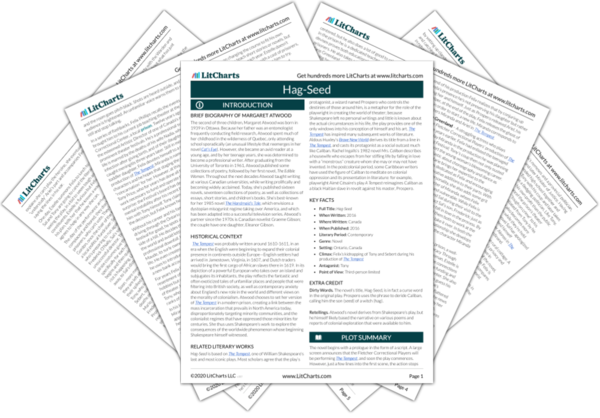Estelle asks
Felix which play he’s chosen for this year. Although he’d been planning on
Henry V, just in this moment he changes his mind and announces his intention to stage
The Tempest. Estelle is visibly disappointed, and he can tell that she’s thinking the play is “way too gay.” Gently, she points out that the actors have always related best to plays about wars and politics. Felix responds that, as a play about prisons,
The Tempest will be eminently relatable. To himself, he thinks that it’s also a play about revenge.
